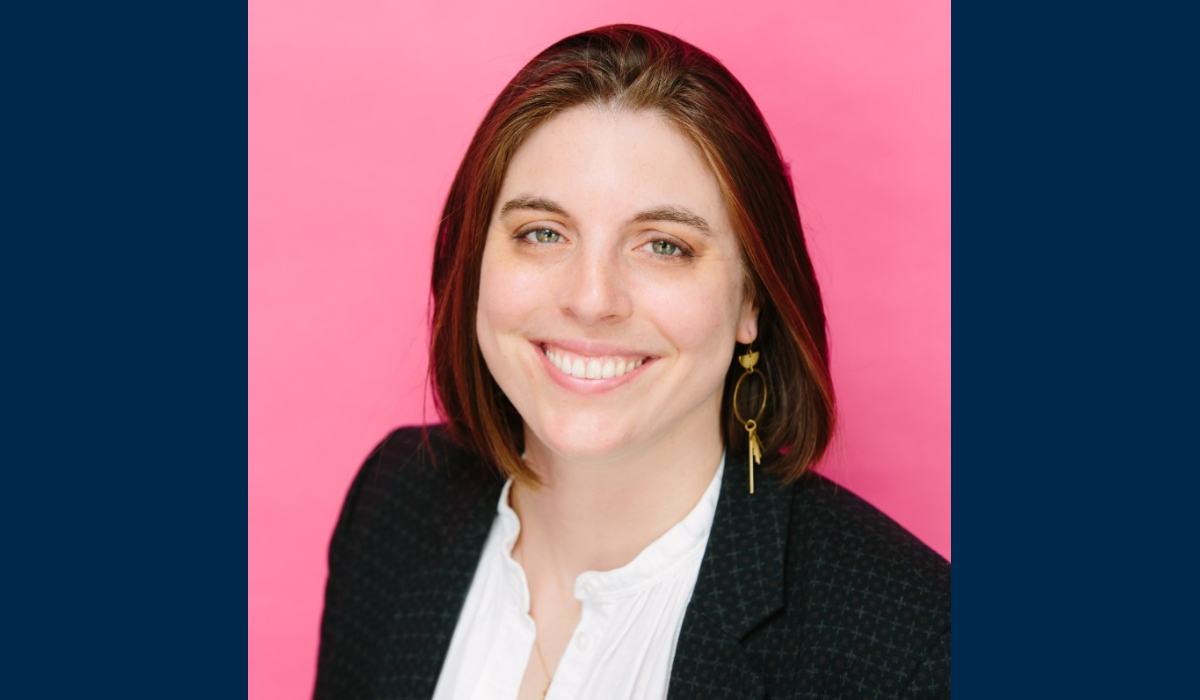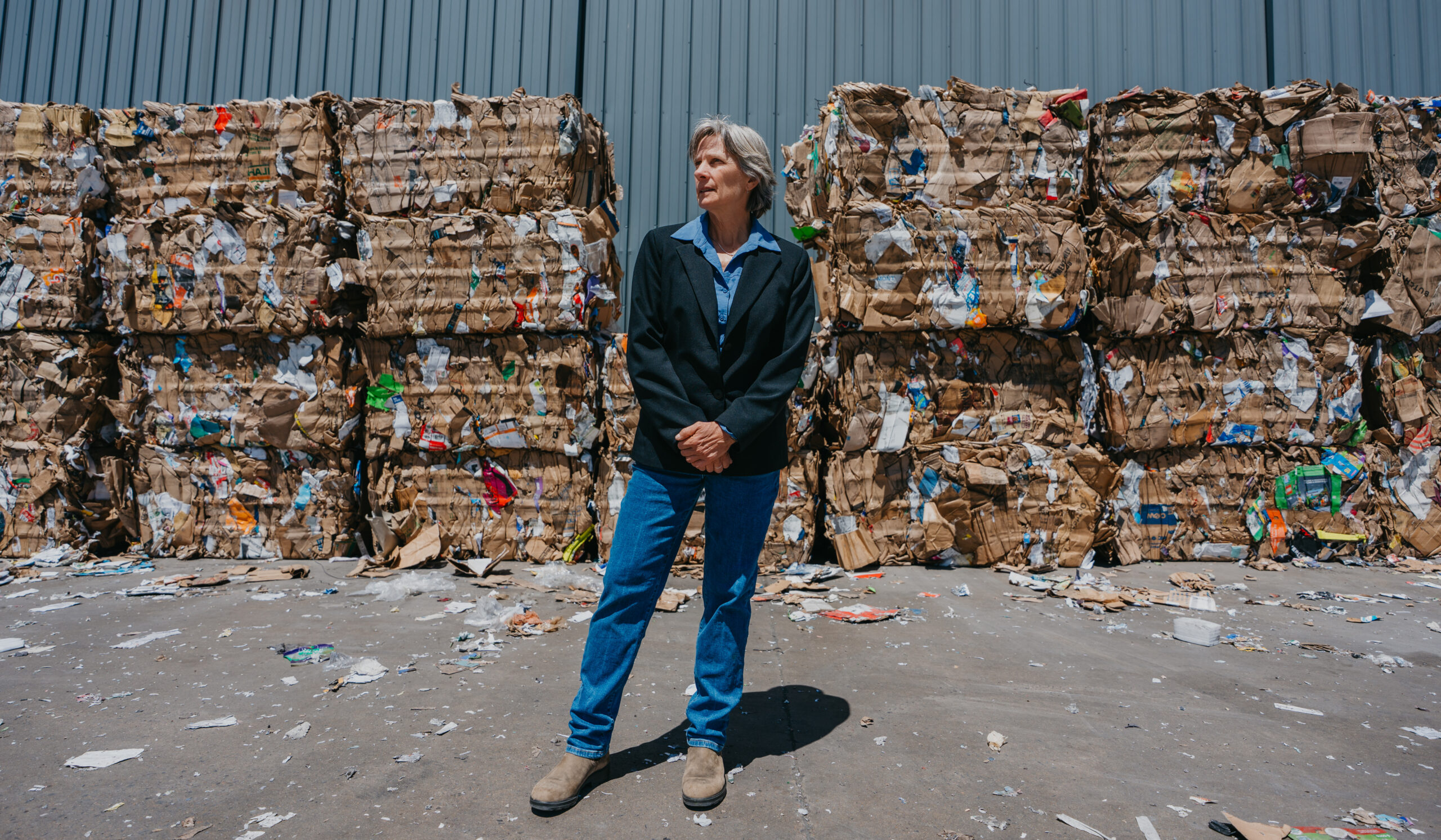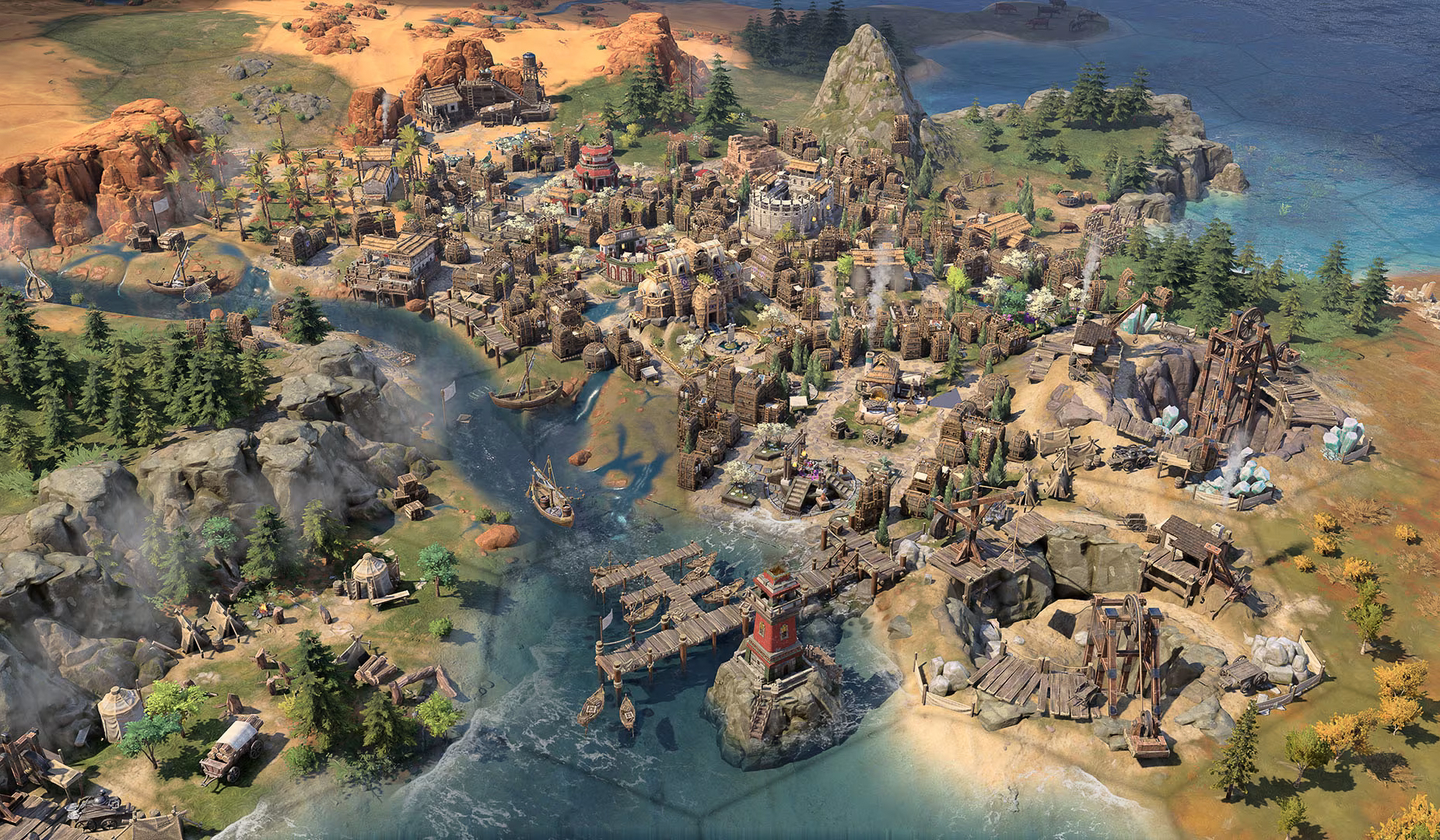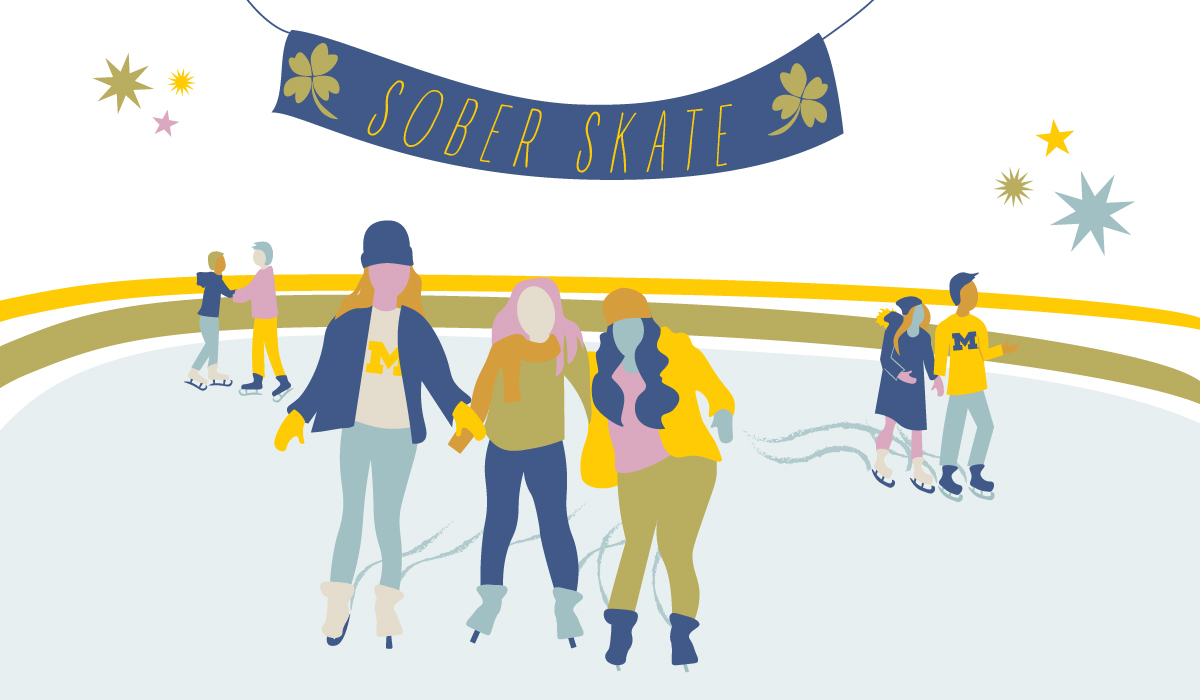Emily Obert is a Weekend MBA student at the Ross School of Business. She’s also the D-Ford Experience Design Director of Product Equity, Inclusion, and Accessibility at Ford Motor Co. We spoke to this student leader about her work, studies, and passion for accessibility.
Can you tell us about the work you’re doing at Ford Motor Co.?
I just started a new role as the D-Ford Experience Design Director of Product Equity, Inclusion, and Accessibility. I lead a multidisciplinary creative team focused on creating delightful experiences for customers that are equitable, inclusive, and accessible for groups who have been historically marginalized and are underserved by existing products. I set the strategic direction for our design team and partner with organizations across Ford to drive creative alignment to ensure we are building a world that empowers an ever-more-diverse group of people.
My work speaks directly to Ford’s Purpose: “We are here for one purpose, to help build a better world, where every person is free to move and pursue their dreams.” I see my team as a catalyst and as a partner for all the other teams at Ford; after all, it is the responsibility of each of us to be more inclusive designers, builders, and businesspeople. I work to make Ford a better listener and partner to diverse communities across the globe, the core practice of inclusive human-centered design.
What inspired your passion for this work?
I had originally been working on accessibility as a side project while leading our employee resource group Ford Empowering Diverse Abilities. The work was becoming more and more of my job until it became clear that my perspective and expertise was needed to be focused full-time on accessibility. I use a wheelchair and one of my favorite parts of leading our employee resource group was learning about the experiences of other disabled employees that were completely different from my own. The diversity of people with disabilities and chronic illnesses motivates me to create more inclusive products. Because people with disabilities are of every race, ethnicity, age, gender, and sexual orientation, and live in every community around the world, there is a huge amount of diversity that must be considered, and so there was a natural evolution of my role to start considering equity more broadly beyond accessibility.
Which of your many accomplishments are you most proud of?
I’m most proud of receiving Ford’s 2021 Global Diversity, Equity & Inclusion Award for leading Ford Empowering Diverse Abilities (FEDA), our employee resource group for people with disabilities, caregivers, and allies. Under my leadership, the organization grew 1600% in the US, gained five new global chapters, and won accolades such as Ford Employee Resource Group of the year in 2020.
Two of my favorite projects that I led while co-president of FEDA were working with our land management company to make our facilities inclusive above and beyond ADA and bringing together designers, engineers, and employees with disabilities to collaborate on accessibility for autonomous vehicles.
What steps are Ford or other major corporations taking to reach disability inclusion and equality, both in the workplace and for consumers?
The members of our employee resource groups have been instrumental in advocating for more inclusive policies and behaviors at Ford. For disability, specifically, I’m happy to say that we have an inclusive hiring program called FordWorks that provides on-the-job training and employment opportunities to neurodiverse individuals.
Ford was also named a “best place to work” for disability inclusion on the Disability Equality Index, a joint initiative between Disability:IN and the American Association of People with Disabilities. Our DEI score of 100 doesn’t mean Ford is perfect, but it does mean that we are using leading disability inclusion practices.
If you are curious to learn more, the Human Capital and DEI section of our sustainability report gives a great overview of how Ford is making progress.
How are you hoping your MBA will help advance your career and/or lend itself to the great work you’re already doing?
I’m in the first third of my Weekend MBA journey at Ross. Out of my current courses, Strategy has the most immediate applicability to my role as an Experience Design Director. I’m really loving the frameworks that Strategy and Intro to Marketing provide for thinking through decisions. Last semester, in addition to new frameworks, my marketing class gave me new language to use while working with our marketing and brand teams to be more inclusive. I’m especially looking forward to classes on bargaining and influencing skills and leadership, as well as the more advanced classes on strategy and marketing.
My Michigan MBA will round out my MIT degrees and passion for human-centered design so that I have the whole 360-view of product innovation. To that, I bring a lens of social responsibility from my personal experiences. I think my MBA will make me even more effective at creating positive change, and people can expect to see more inclusive and innovative experiences created by any organization that I’m leading.
What are your goals after you complete your MBA?
I’m interested in continuing to pursue opportunities related to product equity and accessibility, roles like Chief Accessibility Officer and Head of Product Inclusion & Equity. My nonprofit interests lean towards starting a national professional association for disabled engineers. The need for disability-focused professional networks is huge. It can be hard for companies to find talent, and difficult to find networking opportunities with people who share similar experiences, and professional development often misses topics that are important to professionals with disabilities, like asking for and negotiating accommodations.
Are there any resources you recommend to business communities that are looking reach disability inclusion and equality?
I think the Disability:IN conference, taking place in July, is a great starting point for anyone in the business community looking to improve disability inclusion at their company. They have a Next Gen Leader program for college students and recent graduates with disabilities. Applying to be a mentor would be a great way to take your participation one step further.
Another action you can take is to build a relationship with the Vocational Rehabilitation Agency in your state. They can assist with connecting your business directly to job seekers with disabilities, as well as training around topics like disability inclusion and accommodations.
#CriticalAxis created by The Disabled List is the best way to understand positive and negative disability representation in media, with a focus on advertising.
Finally, some of my favorite books are “Disability Visibility” edited by Alice Wong (Vintage Books, 2020), “Demystifying Disability” by Emily Ladau (Ten Speed Press, 2021), “Being Heumann” by Judith Heumann and Kristen Joiner (Beacon Press, 2021), “Sitting Pretty” by Rebekah Taussig (HarperOne, 2021) and “Mismatch” by Kat Holmes (The MIT Press, 2020) because each of them teaches a lot about creating a more inclusive world with lessons for in and out of the business environment.





